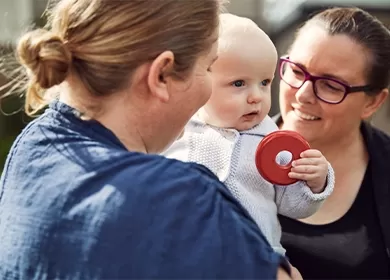Sneezy season: busting cold and flu myths
It’s everyone’s least favourite time of year: winter. It’s cold, there’s less sunshine and trying to keep a polite barrier between you and your colleague that insists they’ve just got “hay fever” and not a raging, contagious flu is getting increasingly difficult.
It’s also the season of medical myths. Catch a cold or flu and you’ll be guaranteed to get some helpful and not-so-helpful tips on how to combat the viruses. So keep these handy myth breakers in your back pocket for next time you’re feeling under the weather!
Myth: Cold and flu are the same thing
They’re both viruses, but they’re not the same kind of virus. Symptoms of the flu are much worse than a common cold, and it can be deadly for young children and the elderly.
Myth: Feed a cold, starve a fever
If you find yourself unwell with a cold or flu, it’s best to increase your fluids and rest until you’re better. Changing the amount of food intake won’t help you get better quicker, but eating a healthy diet when you’re sick gives your body the energy it needs to fight off infection.
Myth: You shouldn’t eat dairy when you’ve got a cold
It’s a myth that just won’t quit! Eating or drinking dairy won’t create more phlegm or make your symptoms worse.
Myth: You can’t donate blood after getting your flu vaccine
You can definitely still donate with us after receiving the flu vaccine! Both seasonal flu and H1N1 or 'swine' flu vaccines are made from 'dead’ (inactivated/recombinant) material, so it doesn’t affect your ability to donate.
Myth: It’s just a cold, I can still donate
Take time to rest and recover, and we will see you soon after. We ask that you don’t donate until one week after you’re fully recovered and feeling fit and well. Even if you’re only experiencing mild symptoms, like a runny nose, please stay home.
Myth: The flu is no big deal, I can still attend my donation
We love the enthusiasm, but your safety is of utmost importance to us. You can donate two weeks after you’ve made a full recovery, but you must stay home while you’re showing any symptoms at all.


